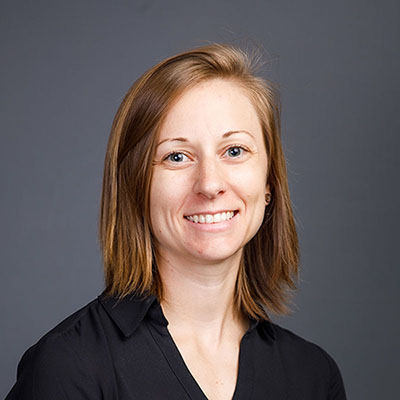Sun Devils work to track COVID-19 through Tempe wastewater
As COVID-19 cases continue to rise in Arizona, researchers from ASU have been working to help track and manage the spread of the virus. One team in particular is tracking COVID-19 through wastewater in the city of Tempe. Doctoral student Devin Bowes helped found One Water One Health, which studies wastewater to gather health-related data for a city’s population.
Bowes, who is pursuing her doctorate in biological design, founded this project along with Professor Rolf Halden and fellow PhD student Nivedita Biyani. Initially, they studied wastewater from the city of Tempe to track opioid usage in the city.

Devin Bowes
Once the COVID-19 pandemic hit, however, the focus of this project shifted, and the team began to think about how their studies could help uncover more about the virus and how it spreads.
For the past few months, they have been collecting wastewater samples from a number of designated regions around the city of Tempe and testing this wastewater to find out how prevalent the COVID-19 virus is in each part of the city.
They report this data in terms of the number of COVID-19 genome copies found per liter of wastewater. The team then publishes their findings on the city of Tempe’s website and regularly updates it as they conduct more testing.
Over the past few months, Bowes and her team have found a pattern in the data, one that reflects the state’s COVID-19 trends.
“In the beginning, there were spikes and that was when the virus was first coming around,” Bowes said.
Bowes also said that as the shelter-in-place order was implemented, any traces of COVID-19 in the wastewater were so low, the team was barely able to detect them. The data now shows some spikes, however, as the shelter-in-place order has been lifted.
Bowes said that this data is important for a number of reasons. For one, it can help leaders make informed decisions about whether or not to continue shelter-in-place orders or to what extent they should allow businesses to start opening up again.
And while testing for the virus is becoming more readily available, access is still somewhat limited, especially for certain communities.
“This pandemic has really shone a light on health disparities. There just isn’t a lot of good or robust clinical testing that is able to reach a wide-scale number of people in order to make a data-driven decision,” Bowes said. “We realize that there’s a lack of testing in certain areas, especially in rural communities and Native American communities throughout the United States. [Wastewater testing] helps us understand, on a broad scale, how we can help public health and fill in those gaps where clinical testing might not be able to reach. ”
In addition to helping found this project, Bowes’ role has been to go out and actually collect the samples for analysis.
“It feels fantastic to be on the front lines and try to understand how this virus operates, how it moves and how it can impact our community,” Bowes said. “Seeing the end result and having those meetings with the city of Tempe and talking through it really is the cherry on top of the pie. It feels really great.”
Prior to starting this project, Bowes had gotten her undergraduate degree in nutrition and dietetics. As she studied, she worked out in the field providing nutrition counseling. This experience showed her disparities in how different communities were being nourished.
When Bowes met Halden in May of 2018, she began working with him as a research assistant, looking through wastewater for nutritional markers. Bowes hoped that this research could give insight into just how prevalent malnourishment was in the community.
Bowes has spent and will continue to spend a significant part of her doctoral studies developing methodologies to more accurately gather nutritional data through wastewater. Bowes’ research has led to the formation of the project through the Biodesign Institute.
In November of 2019, One Water One Health received an innovation award from the J.M. Kaplan foundation. This award would help fund the project for three years and also provide resources and support for groups looking to become nonprofit organizations.
Going forward, Bowes says that she and her team are working to eventually transform this project into a nonprofit organization. In addition to this, once the pandemic begins to die down, the group will have to find new ways to continue their work in regards to helping improve public health.
“In my personal interests, I would love to be able to identify malnutrition in various communities. It’s something that's so crucial, it’s so intimate to our health and well-being, and there are a lot of people who are simply not getting food,” Bowes said. “I feel like if we have a data source to back it up, if we had that information to say that ‘these people are really suffering,’ then perhaps we can make a stronger case and really make a difference there.”
Even once Bowes graduates with her PhD, she hopes to continue doing this work and becoming a mentor to younger students who are also working to improve the lives of others.
“My biggest goal is to stay in academia, to become a professor or potentially become the director of a research center one day. [I want to] mentor students and inspire them to break free from the norm and continue to push boundaries,” Bowes said.
“When you do that, it is typically when you make the biggest breakthroughs. I currently have under my wing about five undergraduate Barrett Honors students who I mentor through their research projects, and I absolutely love it.”
To learn more about the work Bowes and her team are doing, check out the city of Tempe’s webpage for COVID-19 statistics.